Moving to Iceland
Iceland offers a unique living and working environment for those who choose to relocate. At our headquarters and manufacturing facility, located steps away from downtown Reykjavik, there are over 60 nationalities that have chosen to call Iceland their new home. Known for its stunning natural beauty, living in Iceland can be an exciting and rewarding experience. Below is practical information for those who are interested about learning more about what it is like in this beautiful country.
Practical information

Icelandic is the national language, but you can comfortably communicate and connect using English in Iceland.

For citizens from countries outside of Europe, Iceland serves as a gateway to the rest of Europe. For Europeans, Iceland allows for quick visits to the home country, as well as providing an economic gateway to destinations across North America.

Iceland provides a foreign expert tax exemption program to offer financial benefits to foreign professionals with exceptional skills and knowledge not commonly found in Iceland.

The Icelandic pension system is consistently ranked among the best in the world. In international comparisons, it is considered robust, sustainable and with a high-level of integrity.

In Iceland, we are fortunate to benefit from one of the world's most effective healthcare systems.

Iceland is renowned for being an open place for all. Specific immigration regulations for individuals with “specialized skills” make it a prime destination for global talent.

Alvotech Headquarters is a newly built facility that includes state-of-the-art manufacturing and development capabilities.

Fun facts to know
Iceland's natural wonders, safety, and the ease of transitioning to permanent residency make it an attractive destination for our international team. We're here to support your journey every step of the way. As you embark on your Icelandic adventure, these fun facts are sure to spark your curiosity.
Lifestyle and well-being

Iceland's landscape is shaped by its volcanic geology, glaciers, and hot springs.

In recent years, Iceland's housing market has become increasingly dynamic, spurred by the rapid industrial growth and the country's rising popularity as a sought-after destination for living, working, and leisure.

Iceland is the most peaceful country in the world. It's held the position since the inception of the index in 2008.

At Alvotech, we pride ourselves on creating a fun and welcoming environment.

In Iceland, families with children can expect a high degree of freedom and a family-friendly environment that emphasizes equal opportunities for all.

In recent years, Iceland's housing market has become increasingly dynamic, spurred by the rapid industrial growth and the country's rising popularity as a sought-after destination for living, working, and leisure.
